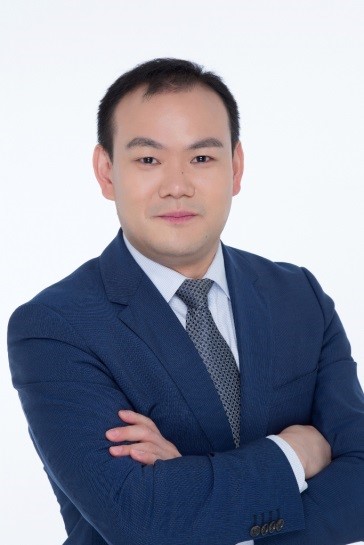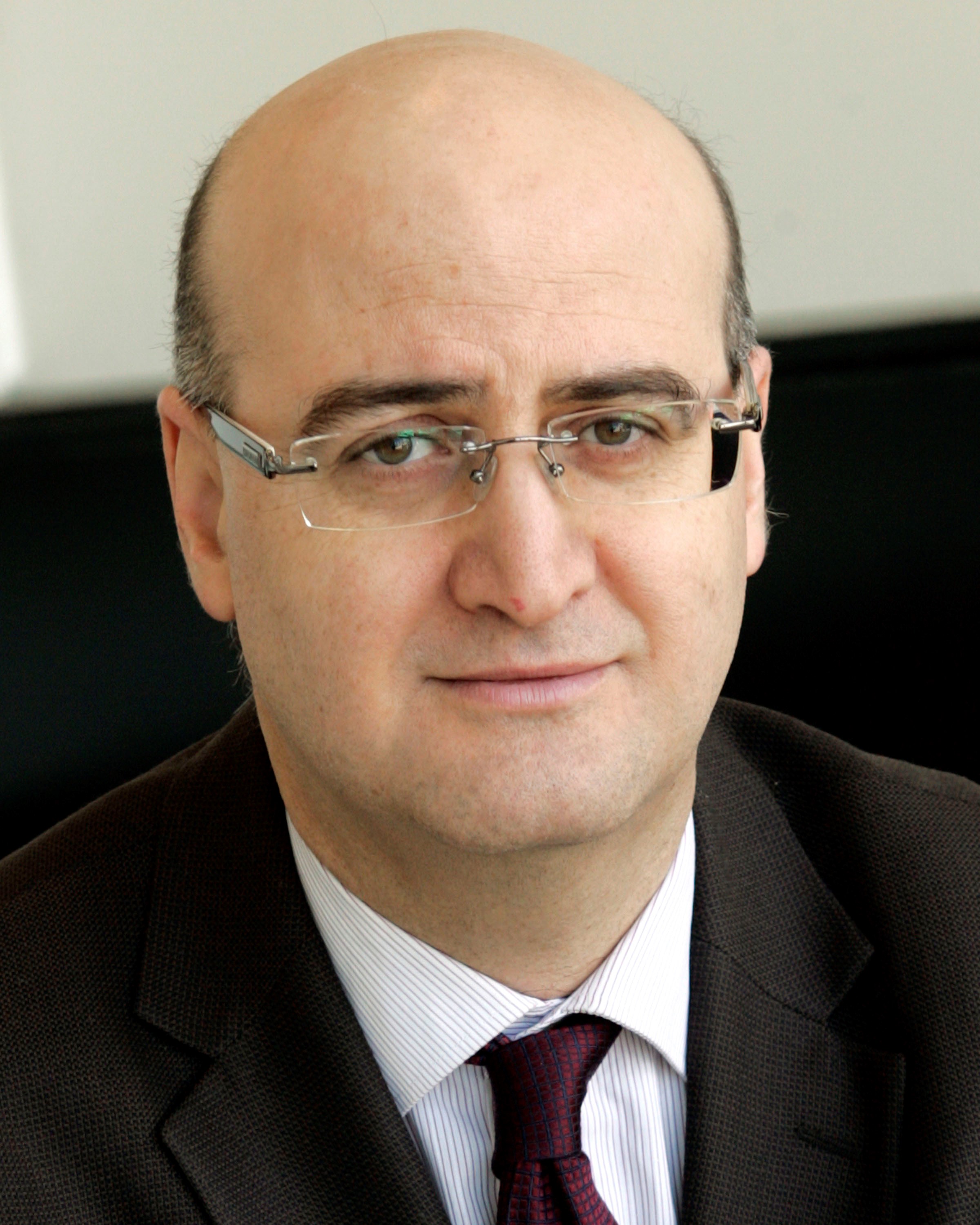|
|
|  |
Brain-Inspired Cognitive Dynamic Systems for Engineering and Health Applications
M Jamal Deen
McMaster University, Canada
|
Abstract: This presentation will introduce and summarize intelligent systems using brain-inspired cognitive dynamic systems (CDS) as an analogy of the human brain, in two important applications. First, an overview of the basic cognition concepts such as the perception–action cycle (PAC), memory, attention, intelligence, and language will be given. Next, we will explain why CDS are necessary and how machine learning methods including supervised learning and reinforcement learning are used. This will be followed by two examples – one in engineering and another in healthcare. In engineering area, we will use CDS as the brain of a software defined optical communications systems (SDOCS) to demonstrate the performance enhancement of ultrahigh-speed optical pulse transmission system upgraded with the preceptor of CDS as the proof-of-concept of SDOCS. Our experimental results show ∼1.3 dB enhancement in Q-factor for a 1.28 Tbaud (10 Gbaud ×128 OTDM) fiber optic system with polarization-multiplexed 64 quadrature amplitude modulation (QAM) at 15 Tbit/s data rate over a 150 km long fiber link. Very importantly, the CDS provides good reliability over system disturbances such as clock recovery intolerance. In healthcare, we have developed a CDS-based framework for a smart e-Health system to realize an automatic screening process in the presence of a defective or abnormal dataset that may have poor labeling and/or lack enough training patterns. To mitigate the adverse effect of such a defective dataset, we developed a decision-making system that is inspired by the decision-making processes in humans in case of conflict-of-opinions (CoO). We present a proof-of-concept implementation of this framework to automatically identify people having Arrhythmia from single lead Electrocardiogram (ECG) traces. It is shown that the proposed CDS performs well with low diagnosis errors. Finally, the proposed CDS algorithm can be incorporated in the autonomic computing layer of a smart-e-Health-home platform to achieve a pre-defined degree of screening accuracy in the presence of a defective dataset.
Biography: Jamal Deen is a Distinguished University Professor at McMaster University. His research interests are nano-/opto-electronics, nanotechnology, data analytics and their applications to health and environmental sciences. His research record includes more than 930 peer-reviewed articles (~20% are invited), two textbooks, 6 awarded patents extensively used in industry, and 26 best paper/poster/ presentation awards. As an undergraduate, he was the top-ranked mathematics and physics student and the second ranked student at the university, winning the Chancellor’s gold medal and the Irving Adler prize. As a graduate student, he was a Fulbright-Laspau Scholar and an American Vacuum Society Scholar. As an educator, he won the IEEE Canada’s Ham Education Medal, the McMaster President’s Award for Excellence in Graduate Supervision, and MSU Macademics’ Lifetime Achievement Award for his exceptional dedication to teaching. His other awards and honours include the Callinan Award and the Electronics and Photonics Award from the Electrochemical Society (ECS); a Humboldt Research Award; the Eadie Medal from the Royal Society of Canada (RSC); the McNaughton Gold Medal, Fessenden Medal and Gotlieb Medal, all from IEEE Canada. He was awarded five honorary doctorate degrees in recognition of his exceptional research and scholarly accomplishments, exemplary professionalism and valued services. He is elected by his peers to Fellow status in thirteen national academies and professional societies including RSC, IEEE, ECS and the American Physical Society. Recently, he was appointed to the Order of Canada. He served as President of the Academy of Science, RSC, from 2015 to 2017.
|
|  |
Applying Machine Learning to Securing Cellular Networks
Elisa Bertino
Purdue University, USA
|
Abstract: Cellular network security is more critical than ever, given the increased complexity of these networks and the numbers of applications that depend on them, including telehealth, remote education, ubiquitous robotics and autonomous vehicles, smart cities, and Industry 4.0. In order to devise more effective defenses, a recent trend is to leverage machine learning (ML) techniques, which have become applicable because of today advanced capabilities for collecting data as well high-performance computing systems for training of ML models. Recent large language models (LLMs) are also opening new interesting directions for security applications. In this talk, I will first present a comprehensive threat analysis in the context of 5G cellular networks to give a concrete example of the magnitude of the problem of cellular network security. Then, I will present two specific applications of ML techniques for the security of cellular networks. The first application focuses on the use of natural language processing techniques to the problem of detecting inconsistencies in the "natural language specifications" of cellular network protocols. The second application addresses the design of an anomaly detection system able to detect the presence of malicious base stations and determine the type of attack. Then I'll conclude with a discussion on research directions.
Biography: Elisa Bertino is a Distinguished Samuel Conte professor of Computer Science at Purdue University. She serves as Director of the Purdue Cyberspace Security Lab (Cyber2Slab). Prior to joining Purdue, she was a professor and department head at the Department of Computer Science and Communication of the University of Milan. She has been a visiting researcher at the IBM Research Laboratory in San Jose (now Almaden), at Rutgers University, at Telcordia Technologies. She has also held visiting professor positions at the Singapore National University and the Singapore Management University. Her recent research focuses on security and privacy of cellular networks and IoT systems, and on edge analytics for cybersecurity. Elisa Bertino is a Fellow member of IEEE, ACM, and AAAS. She received the 2002 IEEE Computer Society Technical Achievement Award for “For outstanding contributions to database systems and database security and advanced data management systems”, the 2005 IEEE Computer Society Tsutomu Kanai Award for “Pioneering and innovative research contributions to secure distributed systems”, the 2019-2020 ACM Athena Lecturer Award, and the 2021 IEEE 2021 Innovation in Societal Infrastructure Award. She received an Honorary Doctorate from Aalborg University in 2021 and an Honorary Research Doctorate in Computer Science from the University of Salerno in 2023. She is currently serving as ACM Vice-president.
|
|  |
Composite DP-unbias: Bounded and Unbiased Composite Differential Privacy
Jinjun Chen
Swinburne University of Technology, Australia
|
Abstract: The most kind of traditional DP (Differential Privacy) mechanisms (e.g. Laplace, Gaussian, etc.) have unlimited output range. In real scenarios, most datasets have bounded output range. Users would then need to use post-processing or truncated mechanisms to forcibly bound output distribution. However, these mechanisms would incur bias problem which has been a long-known DP challenge, resulting in various unfairness issues in subsequent applications. A tremendous amount of research has been done on analyzing this bias problem and its consequences, but no solutions can solve it fully.
As the world first solution to solve this long-known DP bias problem, this talk will present a new innovative DP mechanism named Composite DP-unbias. It will first illustrate this long-known bias problem, and then detail the rational of the new mechanism and its example noise functions as well as their implementation algorithms. All source codes are publicly available on Github for any deployment or verification.
Biography: Dr Jinjun Chen is a Professor from Swinburne University of Technology, Australia. He holds a PhD in Information Technology from Swinburne University of Technology, Australia. His research interests include data privacy and security, cloud computing, scalable data processing, data systems and related various research topics. His research results have been published in more than 300 papers in international journals and conferences. He received various awards such as IEEE TCSC Award for Excellence in Scalable Computing and Australia’s Top Researchers. He has served as an Associate Editor for various journals such as ACM Computing Surveys, IEEE TC, TCC and TSUSC. He is a MAE (Academia Europea) and IEEE Fellow (IEEE Computer Society). He is Chair for IEEE TCSC (Technical Community for Scalable Computing).
|
|  |
The Super Neuron Model -- New Generation Machine Learning and Applications
Moncef Gabbouj
Tampere University, Finland
|
Abstract. Deep Learning is great as it has outperformed many traditional approaches in numerous fields. However, DL comes at a price of high computational cost and follows mostly a Blackbox approach. Striving towards Green Learning, we will propose and discuss Operational Neural Networks (ONNs) as more efficient alternatives to conventional Convolutional Neural Networks (CNNs). ONNs can perform any linear or non-linear transformation with a proper combination of “nodal” and “pool” operators. This is a great leap towards expanding the neuron’s learning capacity in CNNs, which thus far required the use of a single nodal operator for all synaptic connections for each neuron. This restriction has recently been lifted by introducing a superior neuron called the “generative neuron” where each nodal operator can be customized during the training to maximize learning. As a result, the network can self-organize the nodal operators of its neurons’ connections. Self-Organized ONNs (Self-ONNs) equipped with superior generative neurons can achieve diversity even with a compact configuration. A novel approach to enforce diversity in ANN will also be discussed. We shall explore several applications of neural network models equipped with the generative and the superior neuron.
Biography. MONCEF GABBOUJ received his BS degree in 1985 from Oklahoma State University, and his MS and PhD degrees from Purdue University, in 1986 and 1989, respectively, all in electrical engineering. Dr. Gabbouj is a Professor of Information Technology at the Department of Computing Sciences, Tampere University, Tampere, Finland. He was Academy of Finland Professor during 2011-2015. His research interests include Big Data analytics, artificial intelligence, machine learning, pattern recognition, and video processing and coding. Dr. Gabbouj is a Fellow of the IEEE and member of the Academia Europaea and the Finnish Academy of Science and Letters. He is the past Chairman of the IEEE CAS TC on DSP and committee member of the IEEE Fourier Award for Signal Processing. He served as associate editor and guest editor of many IEEE, and international journals and Distinguished Lecturer for the IEEE CASS. Dr. Gabbouj served as General Chair of IEEE ICIP 2024, ISCAS 2019, ICIP 2020, and ICME 2021. Gabbouj is Finland Site Director of the USA NSF IUCRC funded Center for Big Learning and led the Artificial Intelligence Research Task Force of Finland’s Ministry of Economic Affairs and Employment funded Research Alliance on Autonomous Systems (RAAS).
|
|  |
AI-Native Core Network Designs
Nirwan Ansari
New Jersey Institute of Technology, USA
|
Abstract. 3GPP is paving the way for a transformative leap towards AI-Native operations in the upcoming 6G core networks (CNs). Unlike the fragmented and non-standardized applications of artificial intelligence (AI) in 5G CNs, the 6G era promises a revolutionary overhaul. AI will become the central driving force behind all network functions, marking a significant evolution known as AI-Native. This presentation will delve into this paradigm shift, exploring how AI will fundamentally reshape network architectures. Attendees will gain insights into the pivotal role of AI in enhancing efficiency, adaptability, and intelligence across network operations, heralding a new epoch in telecommunications.
Biography. Nirwan Ansari, Distinguished Professor of Electrical and Computer Engineering at the New Jersey Institute of Technology (NJIT), holds a Ph.D. from Purdue University, an MSEE from the University of Michigan, and a BSEE (summa cum laude with a perfect GPA) from NJIT. He is a Fellow of the Institute of Electrical and Electronics Engineers (IEEE) as well as the National Academy of Inventors (NAI).
He authored Green Mobile Networks: A Networking Perspective (Wiley-IEEE, 2017) with T. Han, and co-authored two other books. He has also (co-)authored over 700 technical publications, with more than half of them published in widely cited journals and magazines. He has served as a guest editor for numerous special issues on various emerging topics in communications and networking. Currently, he serves as the Editor-in-Chief of IEEE Wireless Communications and has been on the editorial/advisory board of over ten journals. His current research focuses on green communications and networking, edge computing, drone-assisted networking, and various aspects of broadband networks.
He was elected to serve on the IEEE Communications Society (ComSoc) Board of Governors as a member-at-large. He has served as the Director of ComSoc Educational Services Board, chaired various technical and steering committees within ComSoc, and served on many committees such as the IEEE Fellow Committee. He has actively participated in organizing numerous IEEE International Conferences/Symposia/Workshops. Among his many recognitions are several excellence in teaching awards, multiple best paper awards, the NCE Excellence in Research Award, several ComSoc TC technical recognition awards, the NJ Inventors Hall of Fame Inventor of the Year Award, the Thomas Alva Edison Patent Award, the Purdue University Outstanding Electrical and Computer Engineering Award, the NCE 100 Medal, the NJIT Excellence in Research Prize and Medal, and designation as a COMSOC Distinguished Lecturer. He has also been granted more than 40 U.S. patents.
|
|  |
An Incremental-Self-Training-Guided Semi-Supervised Broad Learning System for Data Annotation
C. L. Philip Chen
South China University of Technology, China
|
Abstract. Coming soon.
Biography. C. L. Philip Chen is the Chair Professor and Dean of the School of Computer Science and Engineering, South China University of Technology. Prior to this position he worked in US in two different universities and Macao, as a tenured professor and conducted in administration. He is a Fellow of IEEE, AAAS, IAPR, CAA, CAAI, and HKIE; a member of Academia Europaea (AE), a member of European Academy of Sciences and Arts (EASA), and a Full Foreign Member of Russia Academy of Engineering (FFM-RAE). He received the IEEE Norbert Wiener Award in 2018, for his contribution in systems and cybernetics, and machine learnings, the IEEE Joseph G. Wohl Outstanding Career award, Wu WenJun Outstanding Contribution award from Chinese AI Association, and 2016 Outstanding Electrical and Computer Engineers Award from his alma mater, Purdue University.
He is a highly cited researcher by Clarivate Analytics from 2018-2023. His current research interests include cybernetics, systems, and computational intelligence. For his contribution in these research areas, he received two times best transactions paper award from IEEE Transactions on Neural Networks and Learning Systems for his papers in 2014 and 2018 and received three-time Macau natural science award. In professional service, he was the Editor-in-Chief of the IEEE Transactions on Cybernetics, the Editor-in-Chief of the IEEE Transactions on Systems, Man, and Cybernetics: Systems, the President of IEEE Systems, Man, and Cybernetics Society. Currently, he is the director of two Guangdong Key Labs, the director of a research lab funded by the Ministry of Education, a Vice President of Chinese Association of Automation, and Co-President of Guangdong AI Industrial Association.
|
|  |
Explainable Knowledge Discovery with Interval Pattern Structures
Sergei Kuznetsov
HSE University, Russia
|
Abstract. Interval pattern structures allow for direct processing of numerical data by constructing clusters, taxonomies of objects, implicational dependencies, biclusters of similar values while avoiding binarization. Models and applications related to interval pattern structures will be discussed. We show that interval pattern structures propose explainable methods of knowledge discovery in numerical data, allowing for better interpretability of the classical ML approaches like k-NN algorithm.
Biography. Prof. Sergei O. Kuznetsov
graduated from Moscow Institute for Physics and Technology and defended Doctor of Science thesis on Machine Learning Models Based on Concept Lattices in 2002 at the Computing Center of Russian Academy of Science. He is now full professor at the HSE University in Moscow, being the head of School for Data Analysis and Artificial Intelligence, the head of the International Laboratory for Intelligent Systems, and the academic supervisor of the Data Science master program. His main research interests are in the Formal Concept Analysis, Explainable AI (XAI) and Knowledge Discovery.
|
|  |
Towards a Hybrid Intelligent Framework for Intrusion Responses in IoT systems
Liming Chen
Dalian University of Technology, China
|
Abstract. The rapid expansion of the Internet of Things and the emergence of edge computing-based applications has led to a new wave of cyber-attacks, with intensity and complexity that has never been seen before. Most research has currently focused on Intrusion Detection Systems (IDS). Due to the volume and speed of this new generation of cyber-attacks it is no longer sufficient to solely detect attacks and leave the response to security analysts. As a result, research into Intrusion Response Systems (IRS) has attracted growing attention. Though substantial progress has been made, resilient automatic IRSs have not been seen yet. In this talk, the speaker will first introduce a data- and knowledge-driven hybrid framework which streamlines the lifecycle from data-driven intrusion detection to the knowledge-driven intrusion responses by combining data analytics and knowledge representation and reasoning. He will then describe the methods and mechanisms for automatic and human-in-the-loop intrusion response, covering cost and effect analysis, action prioritisation, ranking and selection. Following this he will present an initial implementation of the framework in a dashboard prototype. Finally, the speaker will discuss research challenges and future directions to stimulate new ideas and approaches in this promising research area.
Biography. Prof. Liming Chen is a Chair Professor at Dalian University of Technology (DUT), China. He leads the Intelligent Cyber-Physical System Research Lab. Prior to joining DUT, he was the Research Director for the School of Computing at Ulster University, UK. His current research interests include data analytics, pervasive computing, artificial intelligence, intelligent cyber-physical systems and their applications in smart healthcare and cybersecurity. His research has been funded by external grants from the UK research councils, European Research Programmes such as FP7, AAL and Horizon 2020, and industrial collaborators like SAP, British Telecommunication and PwC. Liming was the coordinator for the EU Horizon 2020 Excellence Research programme MSCA ITN ACROSSING project, the General Chair for IEEE DigitalTwin2024, IEEE WoWMoM2022, IEEE Smart World Congress 2019 and IEEE UIC2017. He is an IET Fellow and has served as an expert for research funding assessment for UKRI, EU Horizon2020, Canada, Chile, Netherlands and Denmark.
|














